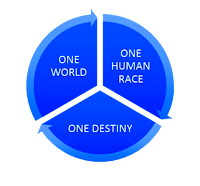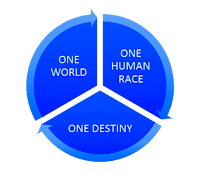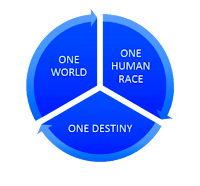AFRICAN COUNTRIES - PEOPLE BEST SERVED WITH GOOD GOVERNANCE?
D
|
eeds which have been done in the realm of darkness, whether they
are good or bad are less likely to be revealed unless the light is shone on
them, and although such deeds do have a way of being revealed, it can sometimes
take very long, which might add to or diminish their significance and impact.
W
|
estern and other countries and organizations have been involved in
countries in Africa, helping them to exercise good governance, including
principles of 'democracy', accountability to their people and transparency in
how they are carrying out the functions of government and business.
S
|
ome people in Africa and elsewhere, including the African diaspora
in America, Europe, the West Indies and the Americas, have, with some
justification, been wary and critical of American and European attempts to get
more African countries to adopt the 'European model of 'democracy',
perceiving it as no more than a neo-colonial strategy to perpetuate the
exploitation of Africa's people and resources.
P
|
robably the most vocal amongst these might be the ruling elites in
the affected African countries; those leaders, politicians and corrupt
individuals and cliques whose privileged positions would become endangered, if
the light of 'democratic principles', effective accountability to and
transparency for their citizens, were to be shone on their actions and
omissions. For them, being left in the darkness of bad governance, lack of
transparency and accountability is a sufficient and necessary condition for
them and their corruption to thrive.
I
|
t is one of the irony of differential perspectives, that some
amongst the African diaspora who have or would support what we could
characterised as 'traditional African 'democracy', would probably oppose it,
were they living in some of these countries.
O
|
ne of the most profound way in which some African governments
plunder their countries and rob their people, is in their misappropriation of
their countries resources and assets for their and their families and cronies
personal wealth. We have seen this occurring in many African countries, such as
Nigeria, CAR, Zimbabwe, South Africa, Egypt, et al. Unfortunately, this does
not seem to be lessening, with corruption continuing to be endemic in many
African countries.
P
|
robably to the extent that it would be extremely difficult to get
rid of or drastically reduce it without killing the patient country. So much
has it become a significant part of, not only the fabric of some of these
countries, but also of their essential organs. For some African leaders, their
country and its resources are theirs; not for the benefit of their people.
Y
|
es, I am only too aware that corruption is widespread in European
and other countries, and that the partners of some of these corrupt African
governments are Europeans and Americans, but that should not be a sufficient
and necessary reason not to debate the need to address it in African countries,
where it is probably harming more people than it does in many countries in the
other continents.
R
|
ecent I watched a documentary on Al jazeera, about a concession
being awarded to an American company to establish a vast palm oil plantation in
Cameroon. According to the programme, the agreement between the Cameroon
Government and the company has been kept secret, which would have meant that
this is not an expression of 'good governance', or 'transparency' and
accountability to the Cameroon people. It would mean that the people of Cameroon
would have to rely on their government to ensure that their and their country's
best interest - not that of the government ministers and functionaries involved
in the deal - are being safeguarded.
Keeping a watchful eye on proceedings?
B
|
ut how are they, the people of Cameroon, going to find this out,
if their government has kept the details of the agreement secret? Of course,
they might find out later, but it might be too late by then. And so it was in
this case, when it transpired that the agreement provided for the American
company to not pay any taxes for the duration of the contract, meaning that the
biggest source of income would be from the wages and salaries of Cameroon
workers on the plantation.
W
|
ith much of the land needed for this mono-culture project being
owned and/or used by ordinary Cameroon citizens, the deal also requires them to
be moved from their homes and cultivation. Whereas they are currently producing
their own food and are employed in doing so, they will subsequently be thrown
into the job market and the consumer economy.
I
|
n many countries in in Europe, and America, ordinary citizens can
challenge such expression of lack of 'good governance', accountability and
transparency, but in too many African countries, to do so would be to put your
life at serious risk of being extinguished.
Y
|
es, it really is the case that, in many African countries, their
governments are in great need of exercising better governance, transparency and
accountability to their people, and not continuing, as Robert Mugabe does, to
try to cover their nakedness under the thinly stretched fig leaf of fighting
against 'colonialism' or neo-colonialism. It is clear that the biggest
beneficiaries of their governments are their corrupt functionaries and the
elites.
F
|
ollowing the principles of transparency, accountability and good
governance is the best way of getting a country's people involved, feeling
included and avoiding corruption in government.
OWOHROD







Comments